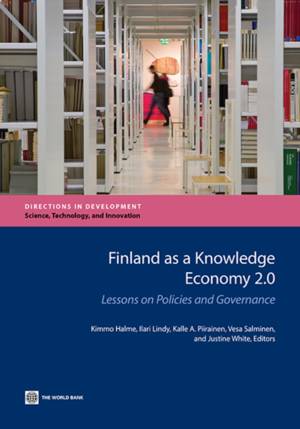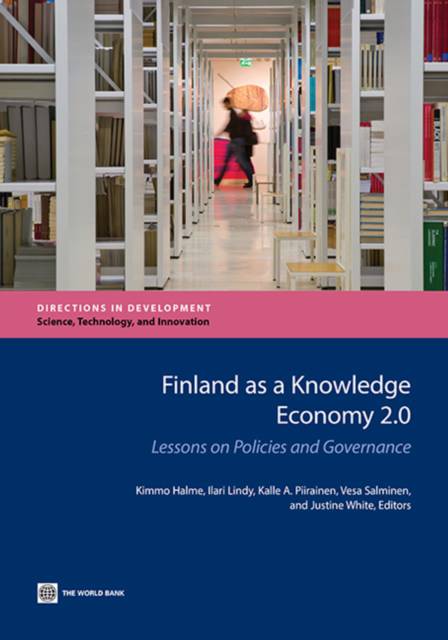
Bedankt voor het vertrouwen het afgelopen jaar! Om jou te bedanken bieden we GRATIS verzending (in België) aan op alles gedurende de hele maand januari.
- Afhalen na 1 uur in een winkel met voorraad
- In januari gratis thuislevering in België
- Ruim aanbod met 7 miljoen producten
Bedankt voor het vertrouwen het afgelopen jaar! Om jou te bedanken bieden we GRATIS verzending (in België) aan op alles gedurende de hele maand januari.
- Afhalen na 1 uur in een winkel met voorraad
- In januari gratis thuislevering in België
- Ruim aanbod met 7 miljoen producten
Zoeken
€ 50,95
+ 101 punten
Omschrijving
Finland is known for its consistent progress in the economy and competitiveness, as well as the egalitarian society underneath it. Yet, the challenges experienced by Finland in the beginning of the 20th century were similar to those experienced by many countries today. Finland emerged as an independent nation in the midst of international economic and political turbulence. In spite of its remoteness, relative scarcity of natural resources, smallness of the home market and recent history characterized by wars and social cleavages, Finland transformed itself from an agriculture-based economy in the 1950's into one of the leading innovation-driven, knowledge-based economies and high-tech producers in the twenty-first century. The development was rapid, and involved determined action and sometimes drastic decisions by the government and other key actors. Today, at the end of 2013, Finland is facing new types of challenges both domestically and internationally in efforts to maintain its societal sustainability and economic competitiveness. Finland Knowledge Economy 2.0 presents some of the key policies, elements, initiatives and decisions behind Finland's path into the Knowledge Economy of today. The authors hope to provide the readers inspiration, new ideas, and novel insights. Hopefully some of the lessons learned may prove valuable in another context. Based on this account of the development of Finnish Knowledge Economy, the authors have identified six areas of lessons, each described in detail in respective chapters. The book should not be seen as a scientific all encompassing study, but rather as a "Knowledge Economy cook-book", with practical cases, links and insights provided for further exploration.
Specificaties
Betrokkenen
- Auteur(s):
- Uitgeverij:
Inhoud
- Aantal bladzijden:
- 182
- Taal:
- Engels
- Reeks:
Eigenschappen
- Productcode (EAN):
- 9781464801945
- Verschijningsdatum:
- 21/04/2014
- Uitvoering:
- Paperback
- Formaat:
- Trade paperback (VS)
- Afmetingen:
- 178 mm x 254 mm
- Gewicht:
- 331 g

Alleen bij Standaard Boekhandel
+ 101 punten op je klantenkaart van Standaard Boekhandel
Beoordelingen
We publiceren alleen reviews die voldoen aan de voorwaarden voor reviews. Bekijk onze voorwaarden voor reviews.









